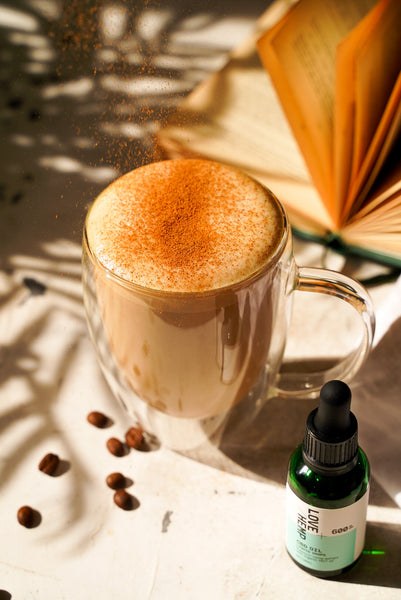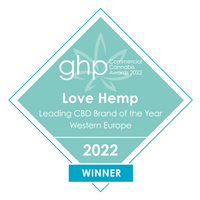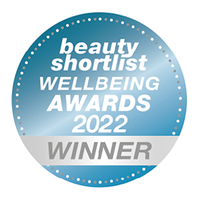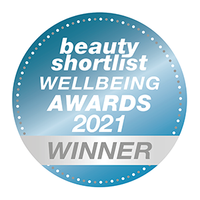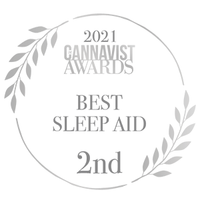It’s Monday morning, you’ve had a heavy weekend and you need a little something to kick your head back into gear. *in walks coffee*. You brew your favourite blend, let the aroma fill the kitchen, and start to slurp on the good stuff. Slowly but surely you feel more awake, more alert, and your body starts to feel a small rush of caffeine circulating and easing you back into the land of the living. Sound familiar? Well you’re not alone. In fact, a survey from 2021 showed that 70% of the UK population drink at least two cups of coffee a day*. But what is caffeine? And where does CBD fit in? Read on as we explore...
Coffee undoubtedly has its benefits including being a powerful antioxidant, and according to One Medical:
“Coffee shows more antioxidant activity than green tea and cocoa, two antioxidant superstars. Scientists have identified approximately 1,000 antioxidants in unprocessed coffee beans, and hundreds more develop during the roasting process. Numerous studies have cited coffee as a major — and in some cases, the primary — dietary source of antioxidants for its subjects.”
So while coffee has its positives, the caffeine content contained within coffee can have adverse effects on some people. Caffeine is a natural stimulant that belongs to a class of compounds called xanthines. It is found in varying quantities in the seeds, leaves, and fruits of some plants, most notably in coffee beans, tea leaves, cacao pods (used to make chocolate), and kola nuts. When consumed, caffeine exerts its stimulating effects by blocking adenosine receptors in the brain. Adenosine is a neurotransmitter that promotes relaxation and sleepiness. By inhibiting these receptors, caffeine increases alertness, reduces the perception of fatigue, and enhances focus.
While moderate caffeine consumption can be enjoyable and beneficial for some people, excessive intake or sensitivity to caffeine can lead to a range of side effects, including symptoms of anxiety. In fact, we carried out a survey with our Instagram community and this showed that 64% of you experienced feeling anxious after drinking coffee.

Here's why:
Stimulation of the Central Nervous System:
Caffeine stimulates the central nervous system, which can lead to an increase in heart rate, blood pressure, and levels of stress hormones like cortisol. These physiological responses can contribute to feelings of restlessness, increased heart rate, jitters and anxiety.
Disruption of Neurotransmitter Balance:
Caffeine's interference with adenosine receptors can lead to an excess of other neurotransmitters like dopamine and norepinephrine. While these neurotransmitters are associated with positive feelings and alertness, an excess can also lead to, in some cases, anxiety.
Effects on GABA:
Caffeine can also indirectly affect the gamma-aminobutyric acid (GABA) system. GABA is a neurotransmitter known for its calming effects on the brain. Caffeine's stimulatory effects may disrupt GABA's function, contributing to increased feelings of anxiety, restlessness and unease.
Individual Variations in Sensitivity:
People have varying levels of sensitivity to caffeine. Some individuals may be more prone to experiencing anxiety-like symptoms even with relatively low doses of caffeine.
It's worth noting that while caffeine can cause or exacerbate symptoms of anxiety in some individuals, it may not have the same effect on everyone. Some people can consume caffeine regularly without experiencing any significant anxiety-related side effects.
So where does CBD fit in here?
When consumed, CBD interacts with our internal endocannabinoid system which is responsible for moderating certain functions, including mood, and can affect how we feel calm. CBD can also have an effect on the modulation of adenosine receptors like caffeine, as CBD also interacts with adenosine receptors, however, it has the opposite effect. While caffeine blocks these receptors and potentially leads to increased anxiety, CBD indirectly increases adenosine levels and this can promote relaxation and a sense of calm. So there you have it. Including CBD with your coffee could be the way to reduce feelings of intense stimulation and jitters.
If you're concerned about the impact of caffeine on your anxiety levels, it's advisable to monitor your consumption and consider reducing it if you notice a correlation between caffeine intake and increased anxiety symptoms, or perhaps swap to a decaf alternative. Additionally, consulting with a healthcare professional or a registered dietitian can provide personalised advice tailored to your specific situation.
(want some CBD iced coffee inspo? Check out our latest Instagram reel)
*The British Coffee Association

